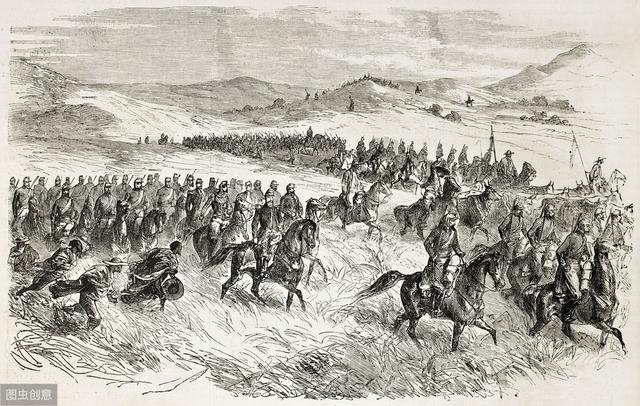Hey there, I'm Emma from mmmEnglish! ,我来为大家科普一下关于期待和期望差别?以下内容希望对你有帮助!

期待和期望差别
Hey there, I'm Emma from mmmEnglish!
There are many different ways to express a single idea in English and these verbs are a good example of that.
嘿,我是 Emma,欢迎来到美味英语频道。在英语中有很多不同的方式来表达同一个意思,而这些动词就是很好的例子。
Knowing the subtle differences and understanding how to use each of these verbs accurately and naturally is a really good sign of the difference between an intermediate student and an advanced English speaker because these verbs can all be used in really similar situations, they're synonyms.
I suppose it can be confusing to know when and how to use them.
了解每个动词之间细微的差异,理解如何准确自然地使用它们是中间水平学生和高级水平的英语人士之间区别的重要标志,因为这些动词都可以用在类似的情况中,它们是同义词。我猜要了解什么时候以及如何使用它们可能会比较令人困惑。
I think you know what I mean right?
But I believe that by the end of watching this video you'll be clear on how to use all of them correctly.
我想你知道我的意思吧?但我相信在观看完此视频后,你将更加清楚地了解如何正确使用所有的这些表达。
I anticipate you'll have some questions but I'll do my best to answer as many of them as I can.
I predict that by the time we get to the mini quiz at the end, you'll have no trouble at all.
我预期大家会有一些问题,但我会尽力回答尽可能多的问题。我预计到我们进行最后的迷你测试的时候,你就没什么问题了。
Let's go! Of all of these verbs, think is the one I'm certain you know and you feel comfortable using.
让我们开始吧!在所有这些动词中,我确定有一个你肯定知道,并且感觉使用起来还挺自如的,那就是 think。
Suppose, believe, anticipate, predict, they can all be synonyms of think. And think has quite a few meanings as well.
假设,相信,预期,预测,它们全都可以是 think 的同义词。Think 也有很多含义。
It can be used in phrasal verbs and other expressions but if we focus on the meaning that is similar to the verbs we've been talking about, then think means to feel that something is true, based on facts or knowledge that you have.
So we use it to take an educated guess.
它可用于短语动词和其他表达形式中,但是如果我们关注的是意思是和我们在谈论的动词的意思相似的那个意思的话,那么 think 的意思就是感觉某件事是真实的,根据你所掌握的事实或知识。因此,我们用它来进行有根据的猜测。
I think it's going to be a hot day tomorrow.
So I'm making a guess and it's based on the weather that we've had in previous days this week and maybe I've seen the weather report, so I'm not a hundred per cent confident that it's going to be hot, but I'm using the information that I have to make that guess.
我认为明天会很热。所以我正在进行猜测,它基于我们本周前几天的天气,也许我看过天气预报,所以虽然我没有百分之一百的信心天气会很热,但我正在使用我所拥有的信息来做出这个猜测。
And by using think, we're communicating that we're unsure. We're not a hundred per cent certain, right?
通过使用 think 这个词,我们表明我们也不是特别确定。我们不是百分之百确定,对吧?
If I was certain then I would say: It will be a hot day tomorrow. I think we need to turn left but I'm a bit lost.
如果我确定的话,我会说:明天会很热。我认为我们需要左转,但我有点迷路了。
Now if you're a regular student of mine, then you'll know that I'm often talking about how important collocations are and even with simple verbs like think, it's often the words that are used with it where my students make mistakes.
So collocations are words that are commonly used together in naturally spoken English.
如果是我的正式学生的话,你肯定会知道我经常会说搭配有多重要,即使是简单的动词,例如 think,我的学生都会在和它搭配的词上犯错误。因此,搭配是英语口语中经常一起使用的词汇。
And with the verb think, the preposition of is often used. When we think of something or someone, we're remembering them and often keeping their needs or their happiness in mind.
介词 of 经常和动词 think 一起使用。当我们想到某事或某人时,我们会记住他们,而且会将他们的需求和快乐牢记于心。
Our neighbour is always thinking of us and dropping home-baked goodies on our doorstep. If I think of someone as something then I have a specific opinion about them.
我们的邻居总是会想到我们,并在我们家门口放自己做的食物。如果我认为某人怎么样的话,那我就是对他们有一种特定的想法。
I always thought of him as a great athlete. Or I've always thought of myself as a city person but I really enjoyed the peace and quiet of the farm.
我一直认为他是一位伟大的运动员。或者我一直认为自己是一个喜欢城市的人,但我真的很喜欢农场的安宁与静谧。
If you think about something, then you're carefully considering it right? You're weighing up different options to make a decision.
当你思考某件事情的时候,那你就是在仔细考虑对吗?你正在权衡不同的选择来做出决定。
I know I said I'd make the offer by the end of the week but I need more time to think about it. It's a tough decision.
我知道我说过我会在本周末之前提出建议,但我需要更多时间考虑一下。这是一个艰难的决定。
Quick note. It is much more natural when you're showing appreciation to someone to say: Thanks for thinking of me.
快速提示一下。当你向某人表示感谢,这样说更加自然:谢谢你为我着想。
Rather than: thanks for thinking about me. I suppose you've heard this verb before but I wonder if you are completely confident in how to use it.
而不是:谢谢你考虑我。我猜你以前肯定听过这个动词,但我想知道你是不是对如何使用它完全有信心。
We use the verb suppose when you generally believe or you think that something is true or possible but you're not completely sure. So of course that sounds very similar to the definition of think, right?
当你大概相信,或者是你认为某件事情是对的或者是有可能的,但是你不是完全确定的时候,我们会使用动词 suppose。所以当然了,听起来与 think 的定义非常相似,对吧?
Let's look at an example. I suppose he's going to show up late again.
让我们来看一个例子。我想他会再迟到的。
He always does. I think he's going to show up again.
他总是这样。我认为他会再次出现。
He always does. So both of these examples are correct.
他总是这样。因此,这两个例子都是正确的。
You can use each of these verbs like this but there is a subtle difference. Think is just a little bit more certain like you feel that you are right, whereas suppose suggests that you're not quite convinced of your own feelings.
你可以在这种情况下使用这两个词,但是有一点细微的差别。Think 的意思更加确定一点,就像你觉得自己是对的,而 suppose 则表明你不是特别相信自己的感受。
Maybe you have some information, enough to take a guess but you don't really have any solid proof.
And when you're using think, well you might also have some information that helps you feel more confident about your feelings.
也许你知道一些信息,足以进行猜测,但你实际上没有任何可靠的证据。当你使用 think 时,你可能还会有一些信息,让你对自己的感觉更加自信。
Maybe someone has said to you that they hadn't seen him in the office all day. Maybe he regularly turns up late so you're using the information that you've got to confidently take a guess.
也许有人对你说他们一整天都没在办公室见过他。也许他经常迟到,所以你在使用自己所拥有的信息来进行有把握的预测。
When you're using suppose it puts your feelings in a little more doubt.
Now you can also use suppose when you are being sarcastic, when you think that something is true or correct, but you're not really happy about it.
当你使用 suppose 时,这会让你的感觉有一种怀疑的色彩。当你在进行讽刺的时候,当你觉得某件事情是真的,但是你并不是很满意的时候,你可以使用 suppose。
I suppose I should finish my homework before I come over. You can also say:
我想我在过来之前要先写完我的作业。你也可以说:
I suppose so as a way to agree with someone and again to show that you have some doubts or maybe that you're not loving the idea. Could you help me to edit this report by the end of the day?
我也这么认为可以作为表达自己同意某人的观点的方式,同样地也表明你有一点点怀疑,或者是你并不喜欢这个想法。你能帮我在今天之前编辑一下这份报告吗?
I suppose so. We use believe when we have an opinion that something is true or that what someone is saying is true.
应该可以吧。当我们相信某件事情是真实的,或者是有人说的话是真的的话,我们会使用 believe。
But it doesn't have to be an opinion based on fact, it can simply be something that you feel is true. I believe that we'll find the right person for the job.
但这不一定是基于事实的意见,它可以仅仅是你认为是真实的事情。我相信我们会找到合适的人选。
We can't give up yet. So again, it's a synonym of think, right?
我们还不能放弃。同样的,这是 think 的同义词,对吗?
So the differences are really subtle but like the verb suppose, when we use believe, it does sound a little less certain. However it is a verb that has power, like you trust in your instinct.
所以差异真的很细微,但是就像动词 suppose 一样,当我们使用 believe 的时候,听起来有点不太确定的感觉。但是这个动词有种力量,就像是你相信你的直觉。
You feel that you're correct but perhaps you don't have the evidence to support it but you do have your faith or trust that it will be.
Now believe is a verb that can be used and is often used in the passive voice.
你觉得你是对的,但是也许你没有证据支持它,但是你相信自己,相信会是这样的。Believe 这个词可以被也经常被用在被动语态中。
We say it is believed that. . . And you'll often hear the adverb widely used as well.
我们说据信……而且你还会经常听到副词 widely 一起使用。
It is widely believed that and that's to emphasise that it's thought to be true by many people.
So we use the passive voice when we don't know or maybe we don't want to say who believes that, so it's a really great sort of collocation, chunk of words to learn and practise using together.
人们普遍认为,这个表达是在强调很多人都认为是这样的。因此,当我们不知道,或者我们不想说是谁相信的话,我们就可以使用被动语态,这真的是一种很棒的搭配,是大家可以学习的、练习一起使用的词块。
Now we use the verb anticipate when we think that something will probably happen so you believe that something is coming in the future.
You can't anticipate that something has happened in the past or the present, we anticipate the future, right?
当我们认为某件事情可能会发生的时候,我们会使用动词 anticipate,意思就是你相信某件事情未来会来到的。你无法预期过去或现在发生了什么事,我们预见的是未来,对吧?
We anticipate our sales will triple by next year. So if I say that I believe our sales will triple, well, it's just my own personal opinion or my feelings right?
我们预期明年我们的销售额将增长三倍。因此,如果我说我相信我们的销售将增长三倍,这只是我个人的意见或我自己的感觉,对吗?
However, if I use the verb anticipate, well, then I usually have some kind of information or facts to back that up. I've got reasons to believe that something is going to happen in the future.
但是,如果我使用动词预期的话,那我一般会有一些信息或事实来进行支撑。我有理由相信某件事情将来会发生。
And when we anticipate something, we usually prepare ourselves to deal with it, too.
We know or we think that we know that something is coming, so we can prepare for that moment or that event in the future.
当我们预期某件事情时,我们通常会做好准备来处理它。我们知道,或我们认为我们知道某件事情要发生,所以我们可以为那个时刻或者是未来的事情做好准备。
I anticipated the test would be difficult so I studied extra hard.
It's a good thing that we anticipated such a large crowd and provided the extra parking.
我预期测试会很困难,所以我学习非常努力。我们预料到会有这么多人,并且提供了额外的停车位可真不错。
And last but not least, we use the verb predict which is actually quite similar to anticipate because we use predict to guess or to explain what we think will happen in the future before it actually does happen.
But the very subtle difference is that we use anticipate when the event that will happen in the future is going to happen at a specific time and we usually use predict when the event will happen further into the future or we don't know what time it's going to happen.
最后但同样重要的是,我们使用动词 predict,实际上这个词与预期非常相似,因为我们使用预测来猜测或解释在某件事情真正发生之前,我们认为将来会发生的事情。但是其中最微妙的区别是,当未来会发生的事情会发生在某个特定时间的话,那我们就是用预期,当这个事情发生在未来,或者是我们不知道具体发生在什么时间的时候,我们会使用预计。
Scientists predict that machines will be quicker in learning and predicting the future than humans! But we could equally say:
科学家预测机器学习比人类更快,预测未来也更快!但是我们也可以说:
We anticipate that machines will be quicker and faster at learning than humans by next year.
Now remember that in many situations, you could use several of these verbs correctly but the meaning of each of those sentences would be slightly different.
我们预期,到明年为止,机器和人类相比学习更加快速。请记住,在许多情况下,这几个动词都是正确的,但是这些句子的意思是有一点点差异的。
Let's just look at a comparison. She believes that 2021 will be a great year.
让我们看一下比较吧。她相信2021年将是超棒的一年。
She predicts that 2021 will be a great year. She thinks that 2021 will be a great year.
她预测2021年将是超棒的一年。她觉得2021年将是超棒的一年。
She anticipates that 2021 will be a great year. And she supposes that 2021 will be a great year.
她预期2021年将是超棒的一年。她认为2021年将是很棒的一年。
So all of these sentences make sense but there are some really subtle differences.
In the first example, by using the verb believe, well it doesn't sound very factual, right?
所以所有的这些句子都说得通,但是确实有一些细微的差异。在第一个例子中,使用动词相信听起来不太真实,对吧?
She might not have much information to back up that belief but she has faith, she has the feeling that 2021 is going to be great.
So in the second example, she not only believes but she's told someone that she believes.
她可能没有太多信息来支撑这种信念,但她有信心,她觉得2021年将会很棒。所以在第二个例子中,她不仅相信,而且还告诉某人她相信。
She's announced her belief, right? In the third example, if she thinks that 2021 will be great, then she's formed that opinion based on some information.
她宣告了自己的信念,对吗?在第三个例子中,如果她认为2021年将会很棒,那她就是根据一些信息而形成的观点。
Maybe she's considered some facts or some ideas, right?
We know that coronavirus vaccine is coming, right, so we think next year is going to be better.
也许她考虑过一些事实或看法,对吗?我们知道冠状病毒疫苗马上就要问世了,所以我们认为明年会更好。
When we use anticipate, well, we can assume that she's planning for 2021 to be great. She's based her belief on some information and she's organising or she's preparing everything to make that happen.
当我们使用预期时,我们假定她计划的是2021年会是很棒的一年。她的信念是基于某些信息,她正在做好准备来让其发生。
In this example, think and anticipate can be used pretty interchangeably, but anticipate is definitely a more advanced way of expressing that idea.
It also suggests more specific and more formal language.
在这个例子中,认为和预期可以互换使用,但是预期绝对是更加高级的表达这个观点的方法。它也表明使用的是更加特定的、更加正式的语言。
And lastly, well, she's got some doubts about 2021 being great. She's not sure.
最后一个,她对 2021 年将会很棒这件事情有一点疑虑。她不确定。
The facts and the ideas, maybe they suggest that it's gonna be great but she's not totally convinced so she's really expressing her doubt by using the word suppose.
I suppose it's gonna be good.
事实和看法可能预示着这一年将会很棒,但她并不完全相信,所以她用 suppose 这个词表达了她的怀疑。我想应该会好的吧。
All right, as always, we've got a little quiz to help you test what you've learned. Are you ready to get started?
好的,一如既往,我们准备了一个小测验来帮助你测试一下你学到的知识。你准备好开始了吗?
I've got some sentences for you and I want you to do your best just to pick the best fit for the space.
Don't forget that you need to change the form of the verb to make sure that the sentence is correct so that might mean conjugating the verb so the grammar's accurate.
我有几句话要告诉大家,我希望大家尽最大的努力,选择最佳的答案。别忘了你需要改变动词的形式,以保证句子是正确的,所以也就意味着列举动词的变化形式,所以语法句式正确的。
Most of these examples are really common expressions or collocations where one verb fits better than the others so think about the meaning and the intention of that verb first and look for clues in the prepositions and words around that verb, those collocations.
We're not — any major issues will be raised at the meeting tomorrow.
这些示例中的大多数都是常见的表达方式或搭配,在这些例子里,一个动词比其他动词更适合,所以先思考一下这个动词的意思和意图,然后从介词和动词周围的词寻找一些线索,就是那些固定搭配。我们不——明天的会议上会提出什么重要的事情。
Anticipating is correct. Everybody likes her and — highly of her.
正确答案是语气。每个人都喜欢她,给她高度的评价。
Now the clue is here. Thinks.
线索就在这里。认为。
If you had asked me to — how I would spend the year 2020 last year, I would have been wrong. Predict.
如果你去年问我我会如何度过我的 2020,我可能会想错了。预测。
Since you have been so good today, I — we can stop for ice cream on the way home. Suppose.
既然你今天表现很好,我——我们可以在回家的路上去买冰淇淋吃。认为。
After watching a few sci-fi documentaries, he now — in aliens. So again, look at that preposition for a clue.
看了几部科幻纪录片后,他现在——在外星人中。同样的,看看介词寻找线索。
Believe, you're right. So how did you do?
相信,你做对啦。你做得怎么样?
Tell me down in the comments especially if any of them were quite challenging for you and can you think of any other synonyms of the word think?
If you can, share them down in the comments below, there are definitely a few more to explore.
在评论中告诉我吧,尤其是如果里面有你觉得比较有挑战性的,你能想到 think 这个词的其他同义词吗?如果可以的话,请在下面的评论中分享一下吧,肯定还有更多的可以探索。
I love that you have stuck with me all the way through to the end of the lesson and you've done the hard work. You're awesome! Well done.
超爱大家的,一直和我一起坚持到课程结束,你们非常努力。你们可真棒!做得好。
And if you haven't subscribed to the mmmEnglish channel yet, well, hit that button down there and do it. You don't want to miss out on any more lessons, right?
如果你还没有订阅美味英语频道,那就快点点击订阅按钮吧。你不想错过更多的课程吧?
Speaking of more lessons, we've got one pronunciation lesson right here, ready to go.
Let's do it!
说到更多的课程,我们这里有一节语音课,已经蓄势待发啦。
让我们开始吧!
,




